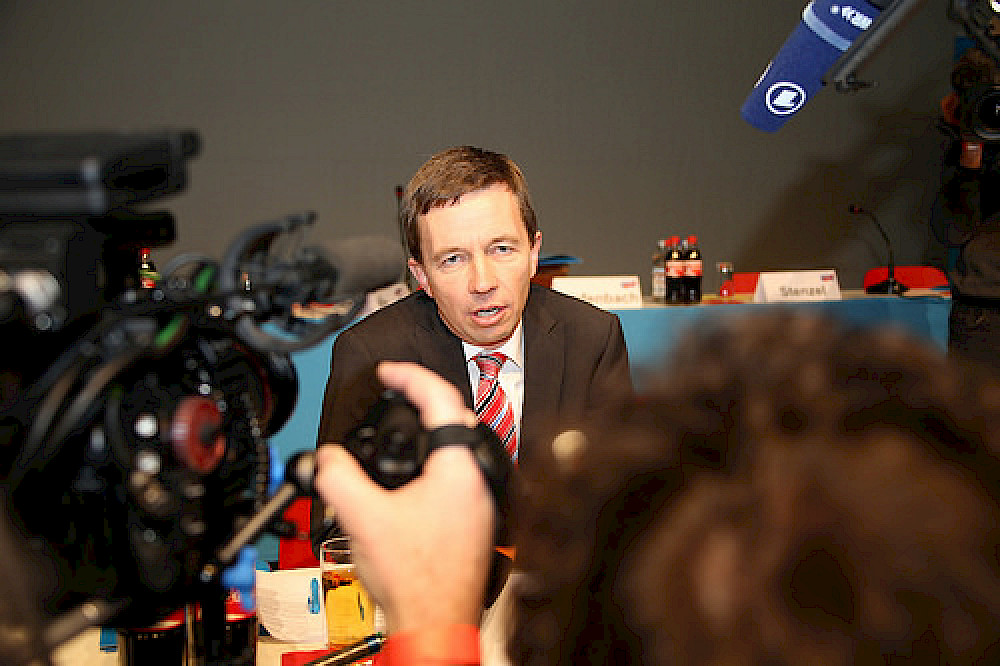With populism on the rise, Robert G. Picard outlines how the news media inadvertently aid populist actors. Picard's article, Are Journalists Reporting – Or Publicising – Populism?, was published on European Journalism Observatory.
It is through news selection and practices that populism exploits the vulnerabilities of journalism. By publicising populists’ outlandish statements and stunts, by treating them fairly, and by accurately reporting their speeches and activities, journalists open themselves to exploitation in ways that distort and conceal truth. Malicious ideas that are antithetical to democracy, human dignity, and knowledge are regularly spread without direct correction or criticism, and thus the foundational values on which the practices of journalism were established are endangered.
Part of the problem is that journalists’ selection of what to cover and whose stories to tell is biased by emphasis on the novel, the unusual, the unexpected, and the deviant. Populist rallies and speeches typically involve all those factors, thus getting the attention and emphasis of journalists and news organizations. That alone assists populists, but there are also significant failures in news coverage itself.
1. Accurate reporting is not always representative
The failures are not about accurate reporting, because most media accurately report populist speeches, pronouncements, and rhetoric. Nevertheless, there are significant failures involving accuracy, verification, balance, fairness, and permitting manipulation to occur.
The failure in accuracy occurs when journalists accurately report what is said, but the story does not present an accurate picture of the world to readers, viewers, or listeners. When stories are filled with assertions based on falsehoods and misinformation and they are not called into question by the journalist or contain rebuttals by other parties, some of the public will accept the assertions as truthful and based on established information. Quality journalism identifies dubious assertions to avoid misleading the public.
2. Reporting without adequate fact checking
The second failure involves reporting without adequate fact checking and contextualisation. Journalists have a duty to their readers and to democratic society to ensure that the information in each article is as truthful as possible. This means journalists must do more than merely report on what candidates say, providing information that confirms or contradicts statements made or showing where statements are based on misinformation or misconstrued facts. Journalists need to examine claims, seek out the facts, and expose falsehood.
3. Balanced reporting can distort the truth
The third failure in reporting on populist leaders and movements results because journalists do not often respond to the significant challenges to the ideal of balanced reporting that it creates. The idea of balance—that there two sides of the story that must be told—often distorts the truth. This idea of two sides is erroneous on its face, because there are usually multiple sides of a story. The real failure, however, results when an equal “balanced” presentation gives readers the impression that each perspective should be given equal weight and is based on similar veracity.
This problem of false equivalency becomes a significant challenge in covering populists and others, because there are some ideas that simply should be ignored, repudiated, or denounced. Not all ideas are of equal value and should not be presented that way.
Journalists must play a role in helping readers distinguish between reasonable and unreasonable ideas. This equivalency and balance problem becomes particularly problematic when covering statements and ideas that are based on misinformation, misrepresentation, and falsehoods. How can truth be balanced with a lie? When journalists remain unreasonably neutral, they help spread falsehoods and lies and promote the causes of hatred and racism.
4. Journalists must be fair to audiences too
A fourth failure involves the issue of fairness. Journalists have an obligation to be fair to those they are reporting about, but also to those they are reporting for. The duty to report fairly does not mean permitting misrepresentations, exaggerations, falsehoods, and lies to be disseminated without rejoinder. And when there is a conflict between duty to be fair to those being reported upon and the public, the duty to readers, viewers, and listeners should prevail.
5. Populists are capable of controlling journalistic practices
The fifth failure has been to ignore or not react to manipulation. Many populists have learned to control journalistic practices to their benefit. Journalists must take special care when rallies and speeches and populist responses to public events and developments—terrorist attacks, fear of foreigners, floundering Middle East policy, and stagnant economies—are clearly being used to gain media attention or twist the coverage. Efforts should be made to ensure that reporting is not unduly responsive to deliberately provocative language and assertions. Failure to exercise care about manipulation makes journalists complicit in the effects of populism.
How to cover populism without becoming its mouthpiece
There is little journalists can do directly to overcome the fear and lack of knowledge of populist supporters because most are not regular readers and viewers of quality news providers. We need to ensure, however, that those who do use our newspapers and broadcasts understand populism and its threats. We need to ensure we are identifying and covering its appearance, addressing it early, and then continuing to critically and carefully cover it without becoming its mouthpiece to recruit new supporters.
We need to be more aware of the types of coverage we are providing, whether our practices are skewing our coverage or allowing us to be manipulated, and the unintended effects of our coverage. Journalistic practices are not sacrosanct, but are in place to help us better serve the public and democratic society. Unthinking and uncritical adherence to the practices can become dangers to those objectives. We need to continually be asking whether we are merely showing loyalty to our practices or loyalty to our audiences and to democracy.
Populism continues to remain a danger to representative democracy. It is our responsibility as citizens and journalists to ensure an effective response to it and that the coverage we provide gives the public the information they need to astutely evaluate its elements, deficiencies, and threats. The future of democracy depends upon it.
Subscribe to FuJo's Newsletter



